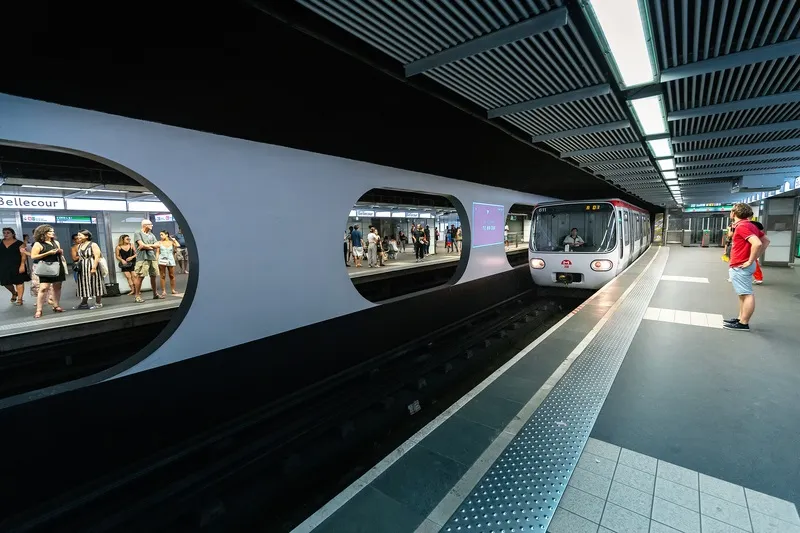In a project valued at more than US$14 million, integrated ITS and ticketing systems supplier Init is to implement a new e-fare/smart card payment system for the Tri-County Metropolitan Transportation District of Oregon (TriMet) in the US.
TriMet provides bus, light rail, and commuter rail service in the Portland metro area; the new system will enable passengers to utilise contactless bank cards and mobile phones, offering more convenience and pricing equity.
The contract comprises the delivery of a
April 2, 2014
Read time: 2 mins
In a project valued at more than US$14 million, integrated ITS and ticketing systems supplier 511 INIT is to implement a new e-fare/smart card payment system for the Tri-County Metropolitan Transportation District of Oregon (1272 TriMet) in the US.
TriMet provides bus, light rail, and commuter rail service in the Portland metro area; the new system will enable passengers to utilise contactless bank cards and mobile phones, offering more convenience and pricing equity.
The contract comprises the delivery of an account-based fare management system which supports both closed loop cards and open payments. It includes a comprehensive central processing module, more than 1,100 onboard and platform validators; 90 mobile inspection devices, and approximately 100 retail POS units. INIT will also provide customer web portals and an initial 1,300,000 contactless smart cards.
INIT’s central processing system, MobilEvario, will deliver an easy to use solution for processing and clearing revenues. Its powerful online validation server will process account transactions in real time providing TriMet with accurate, split second revenue processing. The INIT fare management solution also accepts open payments based on EMV contactless bank cards and NFC phones.
The project also includes integration with third party systems such as fare payment and inspection, mobile ticketing, device management and CAD/AVL information; using INIT’s open architecture approach, open application programming interfaces (API) will be available to external partners.
TriMet provides bus, light rail, and commuter rail service in the Portland metro area; the new system will enable passengers to utilise contactless bank cards and mobile phones, offering more convenience and pricing equity.
The contract comprises the delivery of an account-based fare management system which supports both closed loop cards and open payments. It includes a comprehensive central processing module, more than 1,100 onboard and platform validators; 90 mobile inspection devices, and approximately 100 retail POS units. INIT will also provide customer web portals and an initial 1,300,000 contactless smart cards.
INIT’s central processing system, MobilEvario, will deliver an easy to use solution for processing and clearing revenues. Its powerful online validation server will process account transactions in real time providing TriMet with accurate, split second revenue processing. The INIT fare management solution also accepts open payments based on EMV contactless bank cards and NFC phones.
The project also includes integration with third party systems such as fare payment and inspection, mobile ticketing, device management and CAD/AVL information; using INIT’s open architecture approach, open application programming interfaces (API) will be available to external partners.







